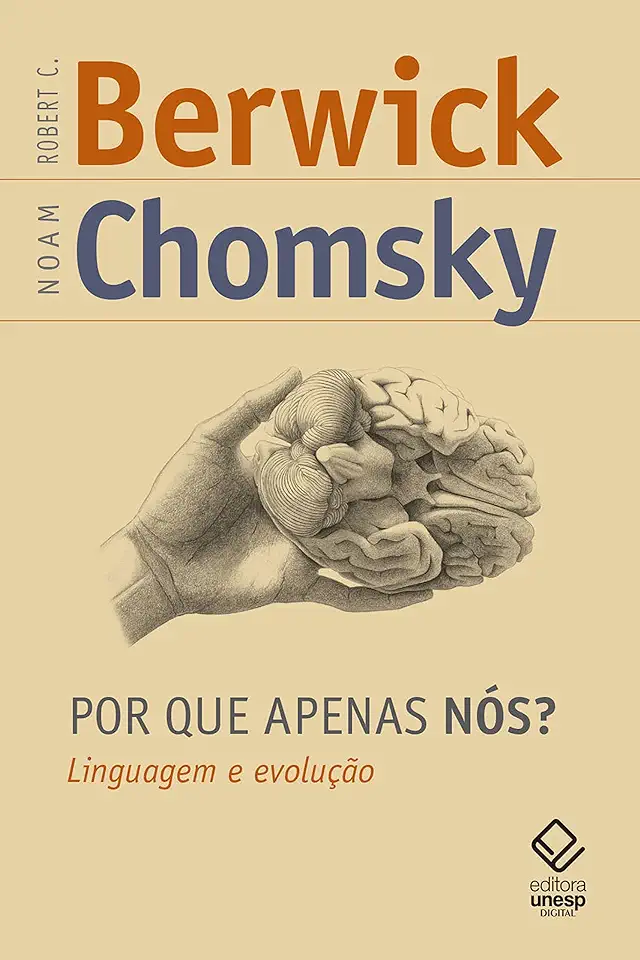
Why Only Us? - Chomsky, Noam
Why Only Us?: Language and Evolution
A Journey into the Deepest Mysteries of Human Nature
In his groundbreaking book, "Why Only Us?: Language and Evolution," renowned linguist and intellectual Noam Chomsky delves into the profound question of why humans are the only species capable of complex language. With his characteristic brilliance and meticulous research, Chomsky embarks on an intellectual journey that challenges conventional wisdom and offers a revolutionary perspective on the origins and nature of human language.
The Uniqueness of Human Language
Chomsky begins by establishing the uniqueness of human language, highlighting its intricate structure, boundless creativity, and capacity for expressing abstract ideas. He argues that language is not merely a tool for communication but a fundamental aspect of human cognition, deeply intertwined with our ability to think, reason, and perceive the world around us.
The Poverty of the Stimulus
One of the central arguments in "Why Only Us?" is the concept of the "poverty of the stimulus." Chomsky contends that the linguistic input children receive from their environment is insufficient to account for the complexity and richness of the language they eventually acquire. This paradox, known as the "Plato's Problem," suggests that there must be innate mechanisms in the human mind that enable us to learn and produce language.
Universal Grammar
Chomsky proposes the theory of Universal Grammar (UG) as a solution to Plato's Problem. UG posits that all human languages share a set of universal principles and structures, which are hardwired into our brains. These principles provide a blueprint for language acquisition, allowing children to learn any language they are exposed to, despite the limited and imperfect input they receive.
The Evolutionary Puzzle
The existence of UG raises a profound evolutionary puzzle: how did such a complex and sophisticated system evolve in humans but not in other species? Chomsky explores various theories, including the role of natural selection, cultural transmission, and the unique cognitive capacities of our ancestors. He argues that language may have emerged as a byproduct of other cognitive adaptations, such as tool use and social cooperation.
The Significance of Language
Chomsky emphasizes the profound significance of language in shaping human society and culture. He argues that language is not only a means of communication but also a powerful tool for thought, creativity, and the transmission of knowledge across generations. Language has enabled us to build civilizations, develop complex technologies, and explore the depths of the universe.
Conclusion
In "Why Only Us?," Noam Chomsky presents a compelling and thought-provoking exploration of the origins and nature of human language. Through his rigorous analysis and groundbreaking theories, Chomsky challenges our understanding of what it means to be human and invites us to reconsider the very foundations of our existence. This book is a must-read for anyone interested in linguistics, cognitive science, evolutionary biology, and the mysteries of human nature.
Why You Should Read "Why Only Us?"
- Gain a deeper understanding of the unique features of human language and its profound impact on our lives.
- Explore the fascinating paradox of the "poverty of the stimulus" and the concept of Universal Grammar.
- Delve into the evolutionary puzzle of language and discover the theories that attempt to explain its emergence in humans.
- Appreciate the significance of language in shaping human society, culture, and civilization.
- Engage with the thought-provoking ideas of one of the most influential intellectuals of our time.
Get Your Copy Today!
Embark on an intellectual journey that will challenge your assumptions and expand your understanding of human nature. Order your copy of "Why Only Us?: Language and Evolution" by Noam Chomsky today and unlock the secrets of the most extraordinary phenomenon in the universe – human language.